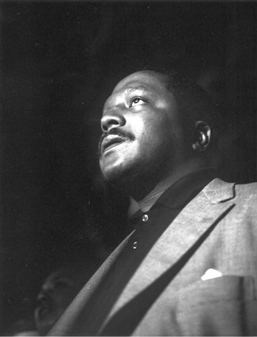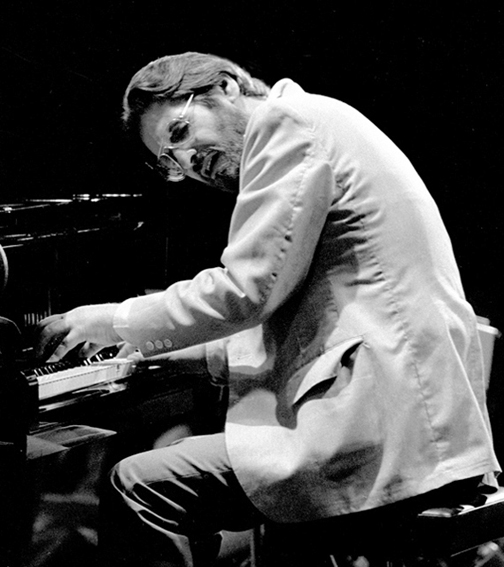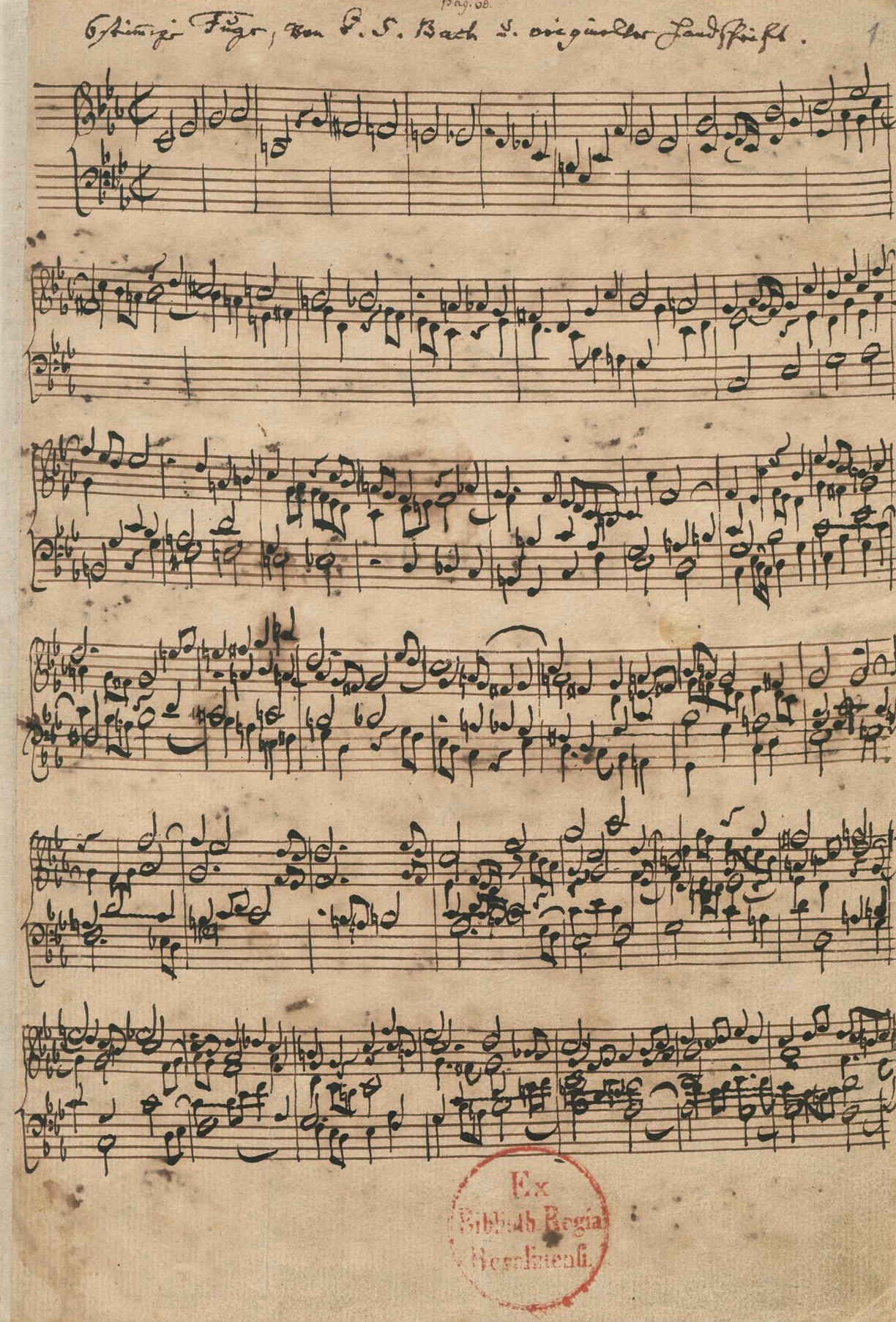|
Tempus Fugue-it
"Tempus Fugue-it" (also known as "Tempus Fugit") is a 1949 jazz composition by jazz pianist Bud Powell (1924–1966). It has been recorded by Powell, Miles Davis and many others. The song is not actually a fugue in compositional form; its title is a pun on the Latin phrase ''tempus fugit ''Tempus fugit'' is a Latin phrase, usually translated into English as "time flies". The expression comes from line 284 of book 3 of Virgil's ''Georgics'', Vergilius Maro, Publius. ''Georgicon'', III. c. 29 BC. Hosted at Wikisource. ...'', meaning "time flies". The name is also a reflection of the speed at which the piece is played. References Citations Sources *"Tempus Fugit" aAllmusic.com *"Tempus Fugit," BMI Work #147024link {{Authority control 1949 songs Compositions by Bud Powell ... [...More Info...] [...Related Items...] OR: [Wikipedia] [Google] [Baidu] |
Bud Powell
Earl Rudolph "Bud" Powell (September 27, 1924 – July 31, 1966) was an American jazz pianist and composer. Along with Charlie Parker, Thelonious Monk, Kenny Clarke and Dizzy Gillespie, Powell was a leading figure in the development of modern jazz. His virtuosity led many to call him the Charlie Parker of the piano. Powell was also a composer, and many jazz critics credit his works and his playing as having "greatly extended the range of jazz harmony".Grove Life and career Early life He was born in Harlem, New York, United States. Powell's father was a stride pianist.Gitler, p. 112. Powell started classical piano lessons at the age of five. His teacher, hired by his father, was a West Indian man named Rawlins. At 10 years of age, Powell showed interest in the swing music that could be heard all over the neighborhood. He first appeared in public at a rent party,Crawford, p. 12. where he mimicked Fats Waller's playing style. The first jazz composition that he mastered was Ja ... [...More Info...] [...Related Items...] OR: [Wikipedia] [Google] [Baidu] |
Jazz Piano
Jazz piano is a collective term for the techniques pianists use when playing jazz. The piano has been an integral part of the jazz idiom since its inception, in both solo and ensemble settings. Its role is multifaceted due largely to the instrument's combined melodic and harmonic capabilities. For this reason it is an important tool of jazz musicians and composers for teaching and learning jazz theory and set arrangement, regardless of their main instrument. By extension the phrase 'jazz piano' can refer to similar techniques on any keyboard instrument. Along with the guitar, vibraphone, and other keyboard instruments, the piano is one of the instruments in a jazz combo that can play both single notes and chords rather than only single notes as does the saxophone or trumpet. Beginning A new style known as “stride” or “Harlem stride” emerged during the 1920s, predominantly in New York. James P. Johnson was a prominent adherent. The left hand was used to establish rhyth ... [...More Info...] [...Related Items...] OR: [Wikipedia] [Google] [Baidu] |
Miles Davis
Miles Dewey Davis III (May 26, 1926September 28, 1991) was an American trumpeter, bandleader, and composer. He is among the most influential and acclaimed figures in the history of jazz and 20th-century music. Davis adopted a variety of musical directions in a five-decade career that kept him at the forefront of many major stylistic developments in jazz. Born in Alton, Illinois, and raised in East St. Louis, Davis left to study at Juilliard in New York City, before dropping out and making his professional debut as a member of saxophonist Charlie Parker's bebop quintet from 1944 to 1948. Shortly after, he recorded the ''Birth of the Cool'' sessions for Capitol Records, which were instrumental to the development of cool jazz. In the early 1950s, Davis recorded some of the earliest hard bop music while on Prestige Records but did so haphazardly due to a heroin addiction. After a widely acclaimed comeback performance at the Newport Jazz Festival, he signed a long-term contract wi ... [...More Info...] [...Related Items...] OR: [Wikipedia] [Google] [Baidu] |
Fugue
In music, a fugue () is a contrapuntal compositional technique in two or more voices, built on a subject (a musical theme) that is introduced at the beginning in imitation (repetition at different pitches) and which recurs frequently in the course of the composition. It is not to be confused with a ''fuguing tune'', which is a style of song popularized by and mostly limited to early American (i.e. shape note or "Sacred Harp") music and West Gallery music. A fugue usually has three main sections: an exposition, a development and a final entry that contains the return of the subject in the fugue's tonic key. Some fugues have a recapitulation. In the Middle Ages, the term was widely used to denote any works in canonic style; by the Renaissance, it had come to denote specifically imitative works. Since the 17th century, the term ''fugue'' has described what is commonly regarded as the most fully developed procedure of imitative counterpoint. Most fugues open with a short ma ... [...More Info...] [...Related Items...] OR: [Wikipedia] [Google] [Baidu] |
Musical Composition
Musical composition can refer to an original piece or work of music, either vocal or instrumental, the structure of a musical piece or to the process of creating or writing a new piece of music. People who create new compositions are called composers. Composers of primarily songs are usually called songwriters; with songs, the person who writes lyrics for a song is the lyricist. In many cultures, including Western classical music, the act of composing typically includes the creation of music notation, such as a sheet music "score," which is then performed by the composer or by other musicians. In popular music and traditional music, songwriting may involve the creation of a basic outline of the song, called the lead sheet, which sets out the melody, lyrics and chord progression. In classical music, orchestration (choosing the instruments of a large music ensemble such as an orchestra which will play the different parts of music, such as the melody, accompaniment, counte ... [...More Info...] [...Related Items...] OR: [Wikipedia] [Google] [Baidu] |
Latin Phrase
__NOTOC__ This is a list of Wikipedia articles of Latin phrases and their translation into English. ''To view all phrases on a single, lengthy document, see: List of Latin phrases (full)'' The list also is divided alphabetically into twenty pages: * List of Latin phrases (A) * List of Latin phrases (B) * List of Latin phrases (C) * List of Latin phrases (D) * List of Latin phrases (E) * List of Latin phrases (F) * List of Latin phrases (G) * List of Latin phrases (H) * List of Latin phrases (I) * List of Latin phrases (L) * List of Latin phrases (M) * List of Latin phrases (N) * List of Latin phrases (O) * List of Latin phrases (P) * List of Latin phrases (Q) * List of Latin phrases (R) * List of Latin phrases (S) * List of Latin phrases (T) * List of Latin phrases (U) * List of Latin phrases (V) See also * Latin influence in English * Latinism Lists *List of abbreviations used in medical prescriptions *List of ecclesiastical abbreviations *List of Germanic and Latinate equ ... [...More Info...] [...Related Items...] OR: [Wikipedia] [Google] [Baidu] |
Tempus Fugit
''Tempus fugit'' is a Latin phrase, usually translated into English as "time flies". The expression comes from line 284 of book 3 of Virgil's ''Georgics'', Vergilius Maro, Publius. ''Georgicon'', III. c. 29 BC. Hosted at Wikisource. where it appears as ''fugit'' ''inreparabile'' ''tempus'': "it escapes, irretrievable time". The phrase is used in both its Latin and English forms as a proverb that "time's a-wasting". Usage ''Tempus fugit'' is typically employed as an admonition against sloth and procrastination (cf. ''carpe diem'') rather than an argument for licentiousness (cf. " gather ye rosebuds while ye may"); the English form is often merely descriptive: "time flies like the wind", "time flies when you're having fun". The phrase is a common motto, particularly on sundials and clocks. It also has been used on gravestones. Some writers have attempted rebuttals: Time goes, you say? Ah, no! alas, time stays, we go. by H(enry) Austin Dobson 1840–1921. 'Hêd ... [...More Info...] [...Related Items...] OR: [Wikipedia] [Google] [Baidu] |
1949 Songs
Events January * January 1 – A United Nations-sponsored ceasefire brings an end to the Indo-Pakistani War of 1947. The war results in a stalemate and the division of Kashmir, which still continues as of 2022. * January 2 – Luis Muñoz Marín becomes the first democratically elected Governor of Puerto Rico. * January 11 – The first "networked" television broadcasts take place, as KDKA-TV in Pittsburgh, Pennsylvania goes on the air, connecting east coast and mid-west programming in the United States. * January 16 – Şemsettin Günaltay forms the new government of Turkey. It is the 18th government, last single party government of the Republican People's Party. * January 17 – The first VW Type 1 to arrive in the United States, a 1948 model, is brought to New York by Dutch businessman Ben Pon. Unable to interest dealers or importers in the Volkswagen, Pon sells the sample car to pay his travel expenses. Only two 1949 models are sold in America that ... [...More Info...] [...Related Items...] OR: [Wikipedia] [Google] [Baidu] |






